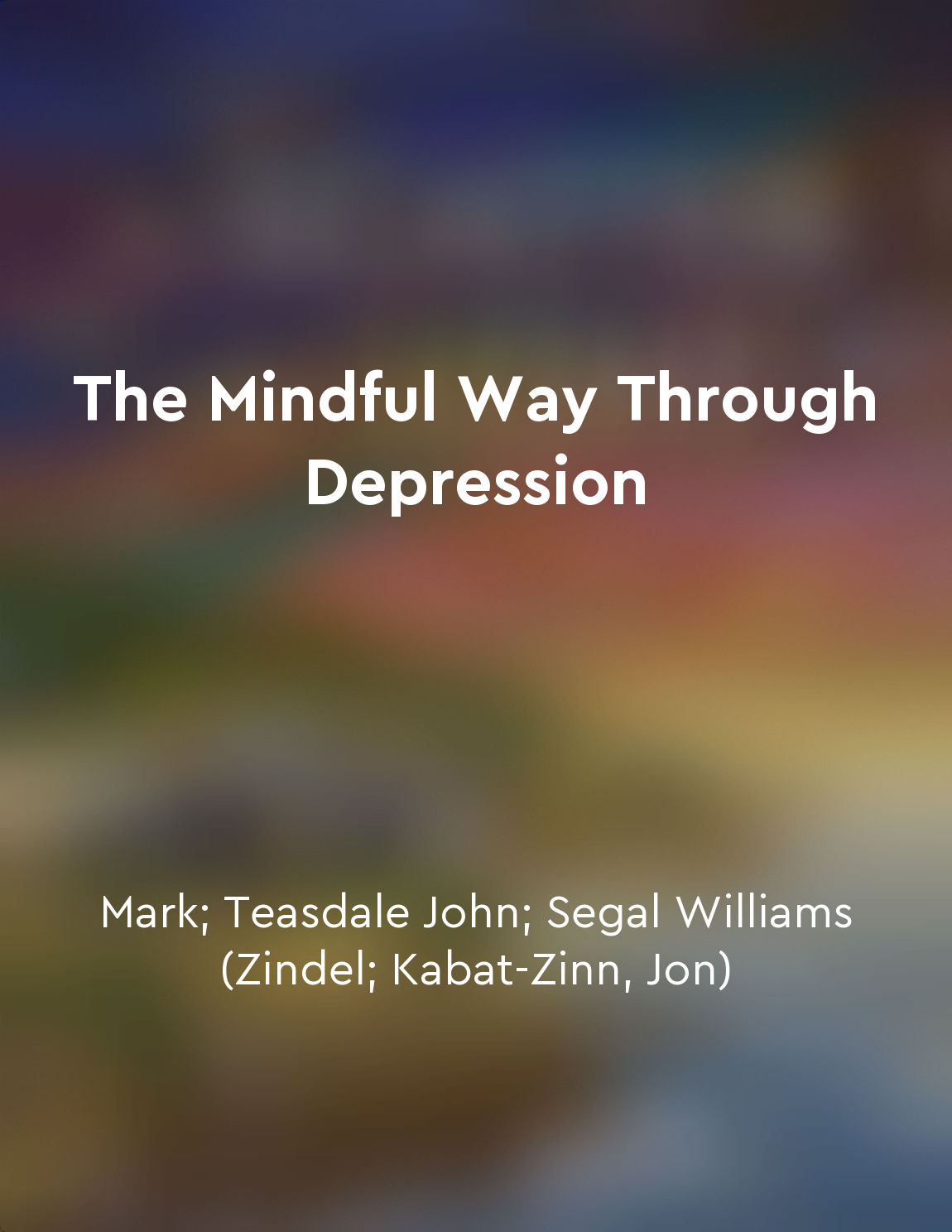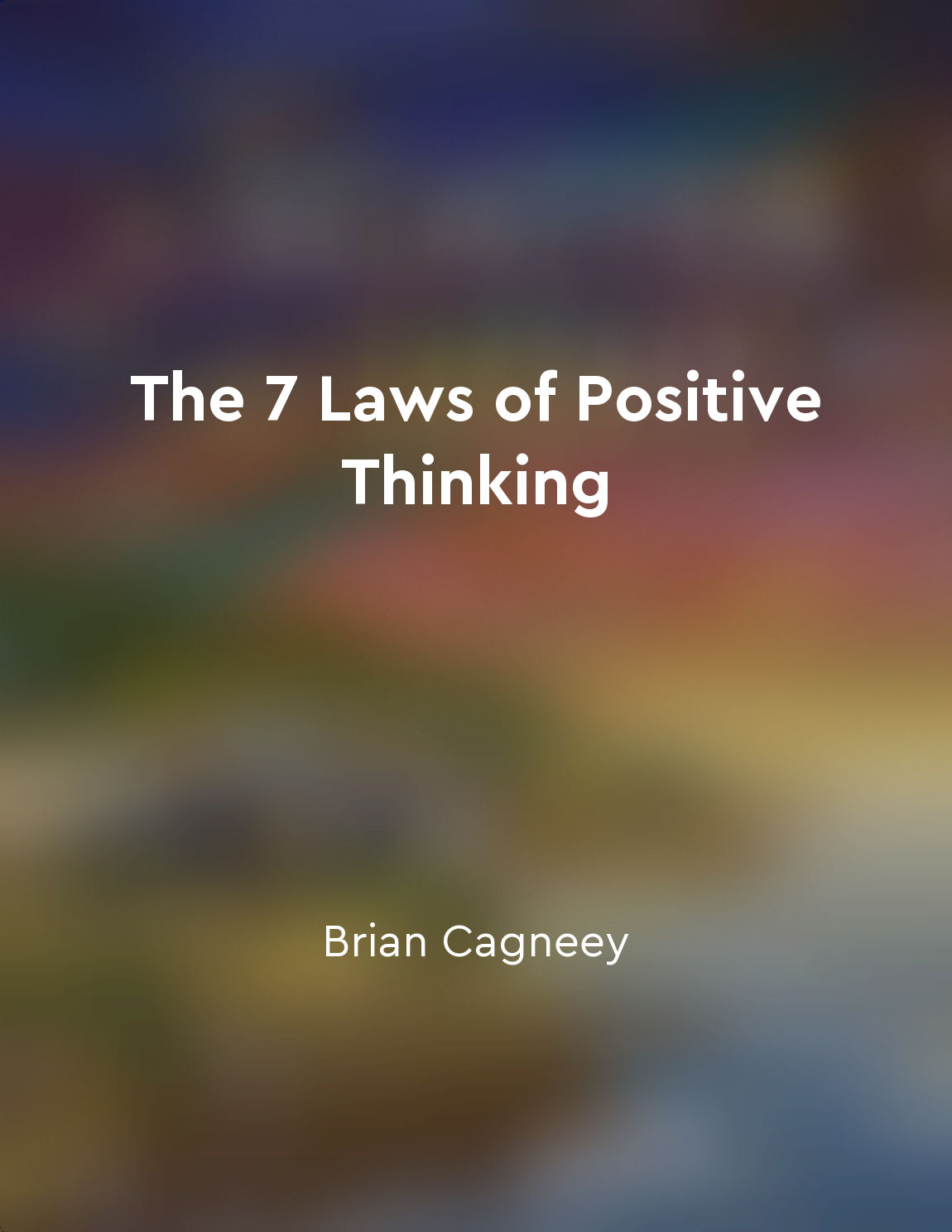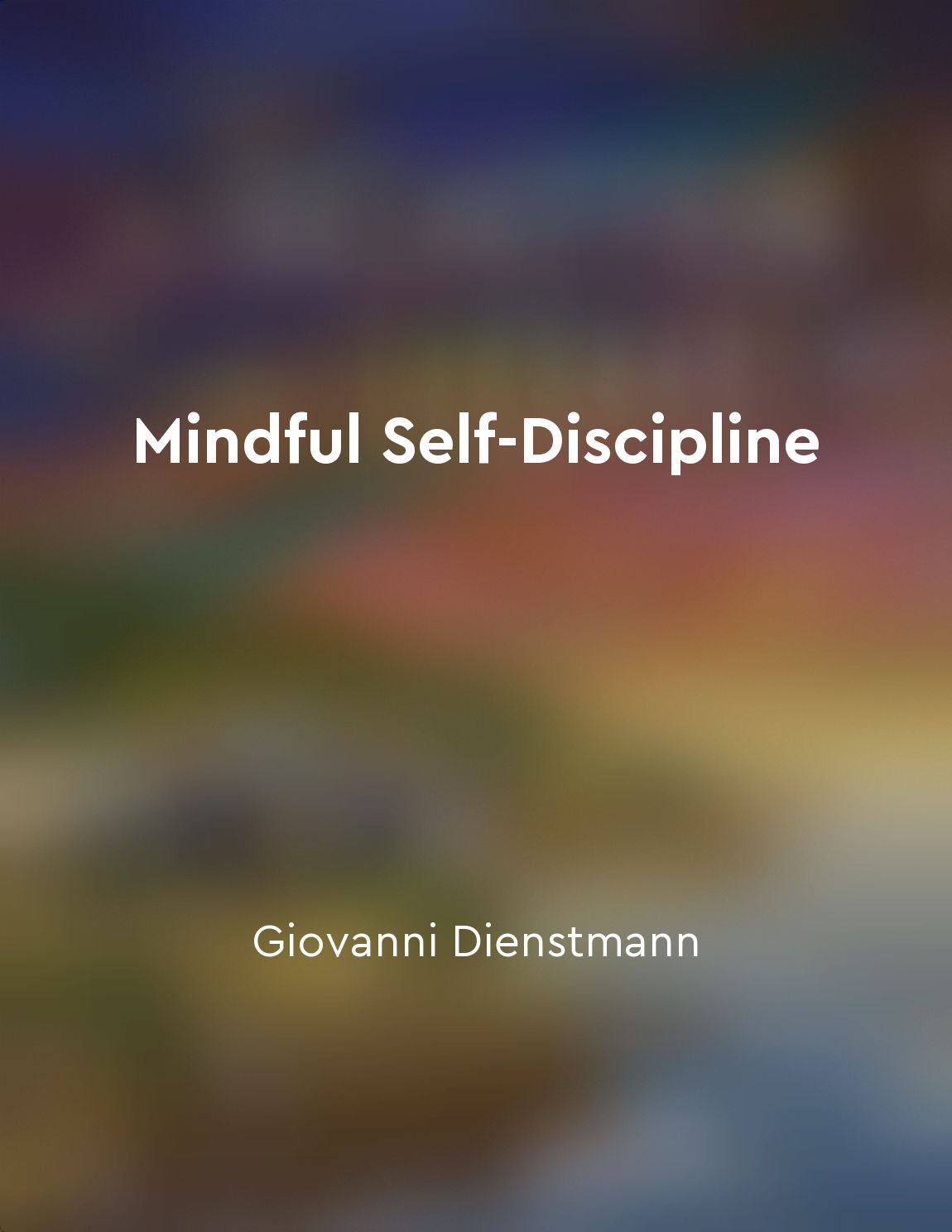Mindfulness can help you let go of the need for control from "summary" of The Now Effect by Elisha Goldstein
When we feel out of control, our minds tend to go into overdrive as we desperately try to regain a sense of order. We micromanage every detail, trying to ensure that everything goes according to plan. This constant need for control can be exhausting, leaving us feeling anxious and stressed. However, mindfulness offers us a different approach to dealing with this overwhelming need for control. By practicing mindfulness, we learn to let go of our attachment to outcomes. We begin to accept that we cannot control everything that happens in our lives. Instead of fighting against the natural flow of events, we learn to surrender to the present moment. This doesn't mean that we give up or stop trying; rather, it means that we release our grip on the need to control every aspect of our lives. When we let go of the need for control, we free ourselves from the burden of constantly trying to manipulate our circumstances. We become more open to new possibilities and opportunities that we may have overlooked in our quest for control. This shift in mindset allows us to approach life with a sense of curiosity and wonder, rather than fear and resistance. Mindfulness helps us cultivate a sense of trust in ourselves and the world around us. We learn to have faith that things will unfold as they are meant to, even if they don't go according to our carefully laid plans. This doesn't mean that we become passive or complacent; rather, it means that we become more flexible and adaptive in the face of uncertainty.- Mindfulness teaches us to find peace in the midst of chaos. We learn to embrace the unknown with open arms, knowing that we have the strength and resilience to face whatever comes our way. By letting go of the need for control, we free ourselves from the constraints of our own expectations and allow ourselves to truly experience the beauty and wonder of the present moment.
Similar Posts

Cultivating mindfulness can lead to a greater sense of peace and contentment
Mindfulness involves paying attention in a particular way: on purpose, in the present moment, and non-judgmentally. By cultivat...

Stay persistent in pursuing your dreams
Persistence is a key ingredient in the recipe for success. It is the ability to keep going even when faced with obstacles or se...
Personal growth and selfimprovement are key components of lasting happiness
The pursuit of personal growth and self-improvement is essential for achieving lasting happiness. When individuals actively wor...

Selfdiscipline is a tool for personal growth and development
Self-discipline is like a muscle that can be developed and strengthened with practice. It is a tool that can help you in your j...

Keep a journal to track your emotions and thoughts
One powerful tool for self-awareness and personal growth is the practice of keeping a journal. By taking just a few minutes eac...
Practice mindfulness to boost selfdiscipline
Mindfulness is the practice of being present and fully engaged in the moment. It requires actively paying attention to your tho...
Practicing gratitude and cultivating a positive mindset can shift the perspective on melancholy
The notion of gratitude and fostering a positive outlook holds the power to transform the way we perceive melancholy. By embrac...
Practice mindfulness
Mindfulness is the key to unlocking the secrets of life. It is the practice of being fully present in the moment, without judgm...
Cultivate selfawareness and self-acceptance
To truly overcome the confidence gap, it is crucial to delve deep into the realm of self-awareness and self-acceptance. This me...
The author stresses the importance of patience and persistence in practice
Throughout the pages of "Full Catastrophe Living (Revised Edition)," the emphasis on patience and persistence in one's practice...

